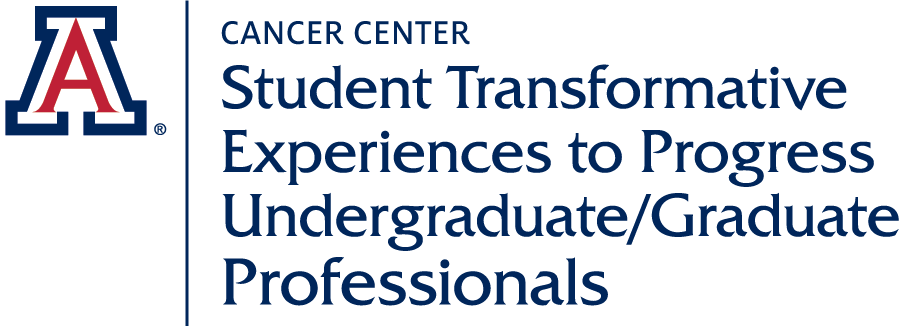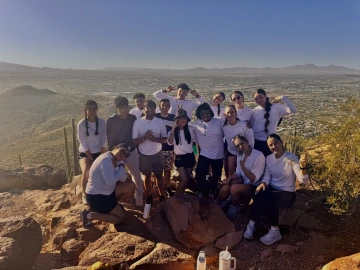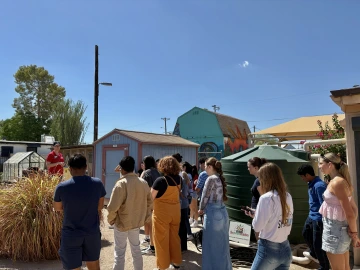STEP-UP Summer Research Program
Summer Research Experience for Undergraduate and Master’s Level Students in Cancer Prevention and Control

STEP-UP is a multidisciplinary initiative led by Cancer Prevention and Control and Health Disparities Program faculty at the University of Arizona Comprehensive Cancer Center. It is uniquely designed to provide Undergraduate and Masters’ degree seeking students with an intensive, 10-week summer research experience in cancer prevention and control. More than 50 faculty members from diverse disciplines who are funded in cancer prevention and control research are committed to this program, which aims at training a cancer workforce that will be ready to meet the challenge of reducing the cancer burden.
Eligibility:
- Current Undergraduate or Master’s Student (must be enrolled as an Undergraduate Junior, Undergraduate Senior or Master's level student during the fall semester of the program year).
- If you are transitioning to graduate school in the fall semester of the program year, you must provide proof of application or acceptance.
- Have a cumulative GPA of 2.75 or above
- U.S. Citizen or permanent resident
- Able to commit to the full 10-week summer research experience. Other employment, courses, commitments, vacations, etc., are prohibited during the program. Please ensure you can comply with a full-time schedule before you apply.
- We encourage applications from students from underrepresented, disadvantaged, non-traditional or first-generation college backgrounds or who attend schools with limited research opportunities.
Program Information:
Training will utilize many resources across campus, including the University of Arizona Cancer Center, The Collaboratory for Metabolic Disease Prevention and Treatment, and the Mel and Enid Zuckerman College of Public Health and will include real-life experiences out in the community.
This is a research-focused program. It should be noted that there is not a large focus on basic science (i.e., wet labs). Students are not required to have any prior research experience to be eligible for this program. We are looking for students that have an interest in a future career in cancer prevention and control. Successful students will be open to new experiences, practice good communication with program mentors and be a self-starter.
During the paid 10-week program, you will:
- Complete a research immersion with a faculty mentor or community partner.
- Develop research method skills (i.e., qualitative, quantitative, etc.).
- Complete a National Institutes of Health Responsible Conduct of Research Certificate.
- Train in literature reviews and participate in journal club.
- Train in point-of-care testing, biospecimen collection, body composition measurements.
- Interact with the community through various community outreach/engagement activities.
- Learn and practice personal cancer preventive behaviors.
- Prior experience with D2L is helpful but not required.
Example Immersion Opportunities:
- Cancer Health Disparities: Work alongside faculty committed to CHD research in a variety of settings and roles
- Analytical Chemistry and Cancer Biomarkers: Hands-on experience with biomarker analysis using a variety of methods and equipment
- Nosotros "Comprometidos a Su Salud": Engage in community-based outreach and cancer prevention recruitment efforts
- BMISR - Behavior Measurement and Interventions Shared Resource: Methodologies for data collection, measurement, validity/reliability
- The Disease Trifecta: Cancer, Diabetes, and Obesity: Study the mechanistic, applied and epidemiology of cancer as a multi-diagnosis disease
This project is funded by the National Cancer Institute | Grant number R25CA275753.




